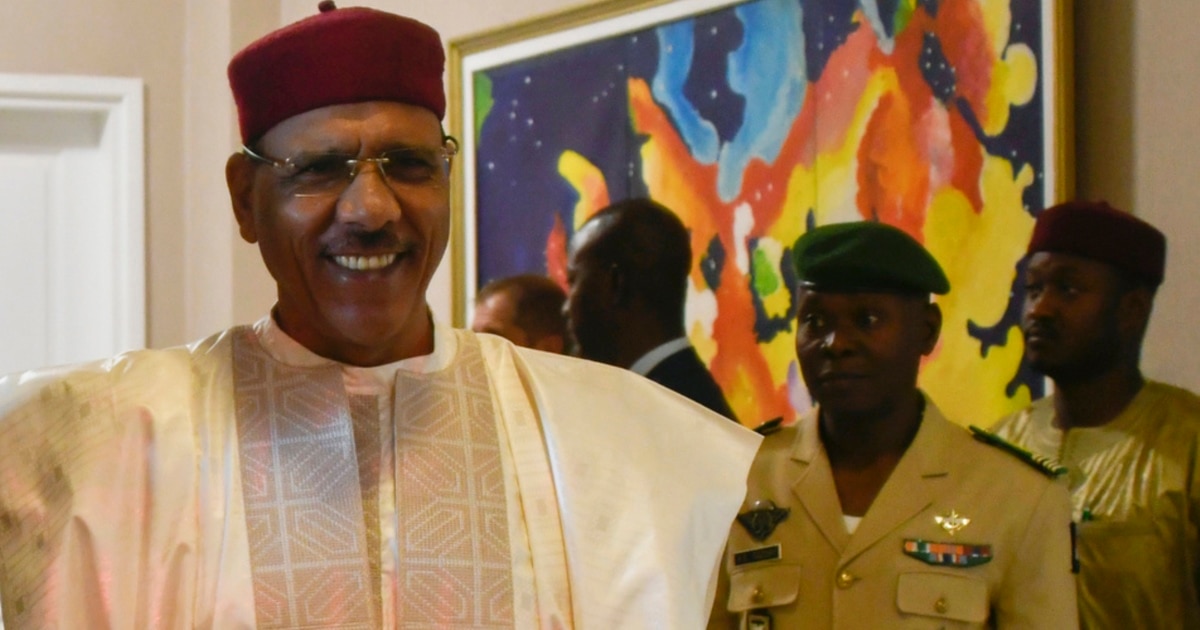part 2:
Fake news: De Gaulle and the KGB in Algeria
A diplomatic rift between France and the US grew to such proportions that US president John F. Kennedy almost cancelled a planned state visit to Paris in May 1961. Neither the US nor France knew at the time that the spat was the product of disinformation planted by KGB agents seeking to reframe events in Africa to discredit Washington and sow mistrust between Western allies.
At the time, Algeria’s National Liberation Front (FNL) was seven years into a war against France that ultimately saw the country winning its independence from colonial rule. By January 1961, the FNL had entered negotiations with French president Charles de Gaulle, but a group of French generals opposed the talks. The Generals’ Putsch of Algiersin April saw leading members of the military try – and fail – to oust de Gaulle.
Amid the chaos, Russian agents saw opportunity and planted an article in an April 1961 edition of “Paese Sera”, an Italian left-wing newspaper, entitled: “Was the Military Coup d’état in Algeria Prepared in Consultation with Washington?”
Its authors claimed that one of the putsch leaders, General Maurice Challe, was a CIA agent on the basis that he was known to be pro-Washington. Challe “had served in NATO headquarters and was unusually pro-American for a senior French officer”, according to a 2001 report on disinformation and the CIA by Max Holland at the Miller Center of Public Affairs.
The fake news planted in “Paese Sera” by the KGB quickly gained traction. An official Russian newspaper, “Pravda”, ran a story alleging CIA support for the revolt as did the Russian state news agency TASS and Radio Moscow. French news daily “Le Monde” then picked up the story, writing, “it now seems established that American agents more or less encouraged Challe”.
The newspaper was later quick to backtrack on the claim, but the damage was done. France’s foreign minister, Maurice Couve de Murville, had to deny the allegations at France’s parliament to calm rising tensions with Washington.
The episode was an “excellent example of how the Communists use the false news story” to great effect, Richard M. Helms, then an assistant deputy directorat the CIA, told the US Senate Internal Security Subcommittee in June 1961.
Arms for information: ‘Alter’ and ‘Sekretar’, secret agents
The relationship between Soviet agents and African liberation fighters could be beneficial to both sides, as evidenced by the relationship between two spies during the Cold War known as “Alter” and “Sekretar”.
Alter, also known as Miroslav Adamek, was a Czech diplomat stationed in Guinea’s capital Conakry who spied for Prague.
Sekretar was Amilcar Cabral, a leading figure in the African liberation movements of the 1960s and ’70s and founder of the African Party for the Independence of Guinea and Cape Verde (PAIGC).
Adamek and Cabral held their first professional meeting in November 1960. The two men shared a meal together, after which the Czech spy said he found their conversation “highly encouraging” and suggested recruiting Cabral as a“clandestine contact” under the code name Sekretar, meaning “secretary”.
Cabral, who was known to be inspired my Marxist ideology, used the meeting to ask for financial and logistical aid to support an uprising against Portuguese colonial powers in Guinea. Moscow – keen to gain new allies – agreed.
It is unlikely that Cabral was a full-fledged Soviet spy, and he may not even have even been aware of the clandestine aspect of his relationship with Adamek. The latter maintained his cover as a diplomat and used it as a pretext to ask Cabral for information about African independence movements.
Despite the subterfuge, the relationship was mutually beneficial. Cabral got weapons that strengthened the PAIGC as a military force. His brother was sent to study medicineat Moscow’s Patrice Lumumba University and his daughter, Iva, was accepted into a prestigious boarding school near the Russian capital.
In exchange, Prague – and Moscow – gained insider information from events to which Cabral was invited, such as conferences between countries that opposed the Soviet Union. They were also able to gain a deeper understanding of thefigures leading liberation movements across Africa.
The relationship only dried up when Russian tanks invaded then Czechoslovakia in August 1968 to supressthe cultural liberalisations of the Prague Spring, after which Czech spies were less inclined to support Moscow.
This article was adapted from the original in French.
Fake news: De Gaulle and the KGB in Algeria
A diplomatic rift between France and the US grew to such proportions that US president John F. Kennedy almost cancelled a planned state visit to Paris in May 1961. Neither the US nor France knew at the time that the spat was the product of disinformation planted by KGB agents seeking to reframe events in Africa to discredit Washington and sow mistrust between Western allies.
At the time, Algeria’s National Liberation Front (FNL) was seven years into a war against France that ultimately saw the country winning its independence from colonial rule. By January 1961, the FNL had entered negotiations with French president Charles de Gaulle, but a group of French generals opposed the talks. The Generals’ Putsch of Algiersin April saw leading members of the military try – and fail – to oust de Gaulle.
Amid the chaos, Russian agents saw opportunity and planted an article in an April 1961 edition of “Paese Sera”, an Italian left-wing newspaper, entitled: “Was the Military Coup d’état in Algeria Prepared in Consultation with Washington?”
Its authors claimed that one of the putsch leaders, General Maurice Challe, was a CIA agent on the basis that he was known to be pro-Washington. Challe “had served in NATO headquarters and was unusually pro-American for a senior French officer”, according to a 2001 report on disinformation and the CIA by Max Holland at the Miller Center of Public Affairs.
The fake news planted in “Paese Sera” by the KGB quickly gained traction. An official Russian newspaper, “Pravda”, ran a story alleging CIA support for the revolt as did the Russian state news agency TASS and Radio Moscow. French news daily “Le Monde” then picked up the story, writing, “it now seems established that American agents more or less encouraged Challe”.
The newspaper was later quick to backtrack on the claim, but the damage was done. France’s foreign minister, Maurice Couve de Murville, had to deny the allegations at France’s parliament to calm rising tensions with Washington.
The episode was an “excellent example of how the Communists use the false news story” to great effect, Richard M. Helms, then an assistant deputy directorat the CIA, told the US Senate Internal Security Subcommittee in June 1961.
Arms for information: ‘Alter’ and ‘Sekretar’, secret agents
The relationship between Soviet agents and African liberation fighters could be beneficial to both sides, as evidenced by the relationship between two spies during the Cold War known as “Alter” and “Sekretar”.
Alter, also known as Miroslav Adamek, was a Czech diplomat stationed in Guinea’s capital Conakry who spied for Prague.
Sekretar was Amilcar Cabral, a leading figure in the African liberation movements of the 1960s and ’70s and founder of the African Party for the Independence of Guinea and Cape Verde (PAIGC).
Adamek and Cabral held their first professional meeting in November 1960. The two men shared a meal together, after which the Czech spy said he found their conversation “highly encouraging” and suggested recruiting Cabral as a“clandestine contact” under the code name Sekretar, meaning “secretary”.
Cabral, who was known to be inspired my Marxist ideology, used the meeting to ask for financial and logistical aid to support an uprising against Portuguese colonial powers in Guinea. Moscow – keen to gain new allies – agreed.
It is unlikely that Cabral was a full-fledged Soviet spy, and he may not even have even been aware of the clandestine aspect of his relationship with Adamek. The latter maintained his cover as a diplomat and used it as a pretext to ask Cabral for information about African independence movements.
Despite the subterfuge, the relationship was mutually beneficial. Cabral got weapons that strengthened the PAIGC as a military force. His brother was sent to study medicineat Moscow’s Patrice Lumumba University and his daughter, Iva, was accepted into a prestigious boarding school near the Russian capital.
In exchange, Prague – and Moscow – gained insider information from events to which Cabral was invited, such as conferences between countries that opposed the Soviet Union. They were also able to gain a deeper understanding of thefigures leading liberation movements across Africa.
The relationship only dried up when Russian tanks invaded then Czechoslovakia in August 1968 to supressthe cultural liberalisations of the Prague Spring, after which Czech spies were less inclined to support Moscow.
This article was adapted from the original in French.


/cloudfront-us-east-2.images.arcpublishing.com/reuters/CPGTGVFEYZOJPAXFO34IYEOB6E.jpg)